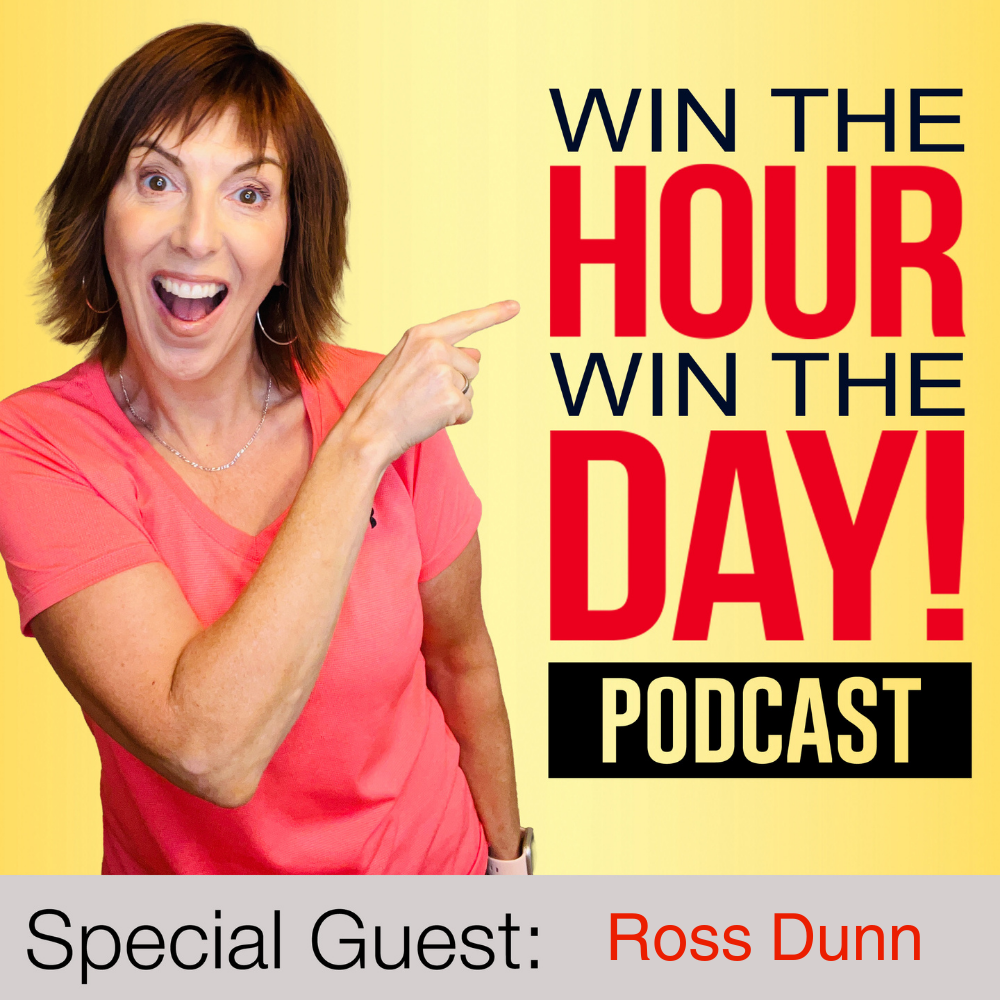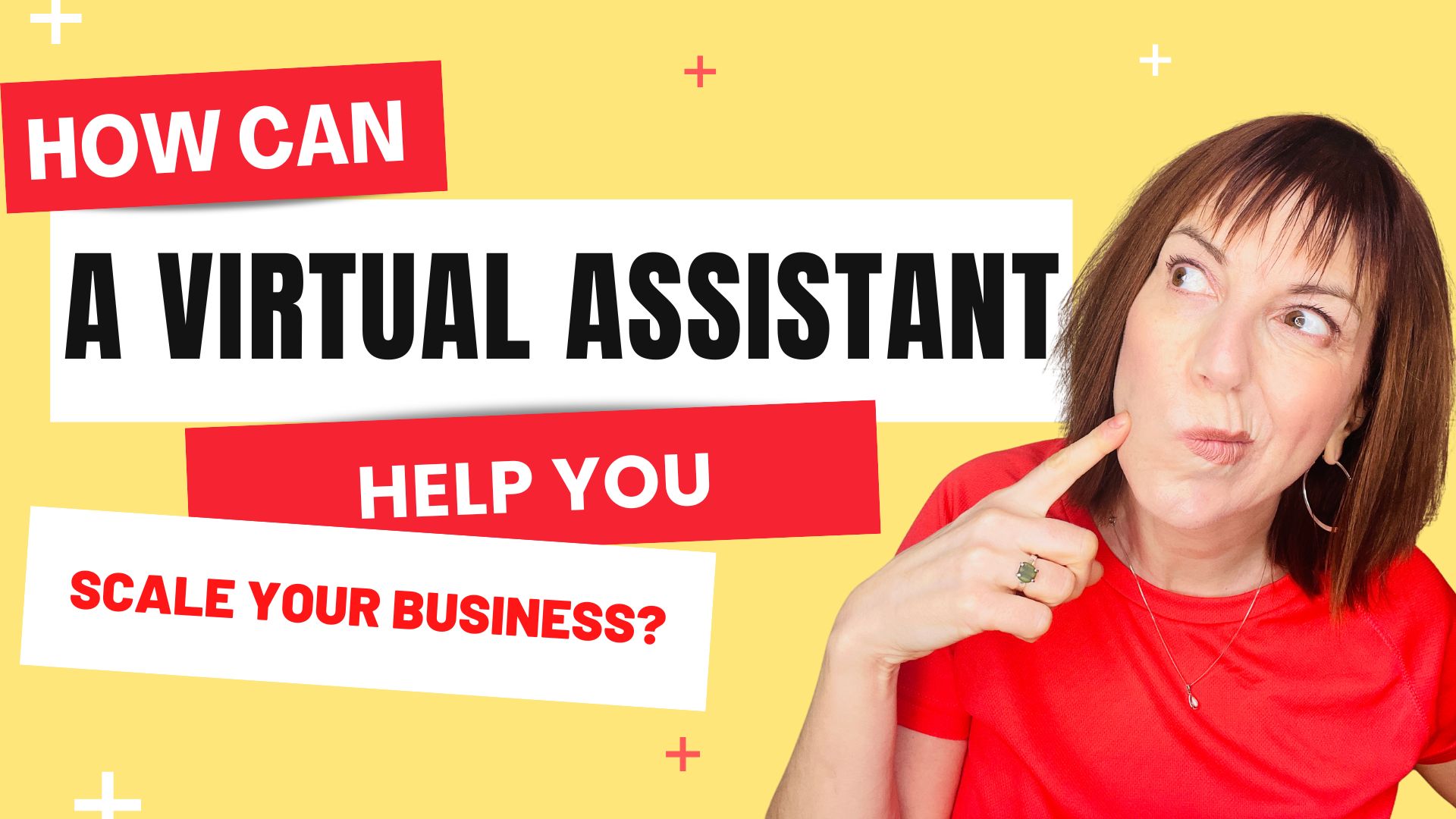Episode Summary
This week’s episode of Win The Hour, Win The Day Podcast is sponsored by Win The Hour, Win The Day’s Signature Coaching Program the Winners Circle. Kris Ward who helps entrepreneurs to stop working so hard interviews, James Scherer.
James Scherer talks to us about SEO but it’s not your regular “oh no SEO” stuff! James enlightens us on how to use SEO easily, effectively, and efficiently so we can grow our business.
Learn:
-How to gain and leverage your topical authority.
-When you can use AI to optimize your content.
-Why you need to revisit your existing content.
And MUCH more!
Scale Your Business Scorecard
https://bit.ly/WinTheHourWinTheDayScoreCard
Win The Hour, Win The Day! www.winthehourwintheday.com
Podcast: Win The Hour, Win The Day Podcast
Facebook: https://www.facebook.com/winthehourwintheday/
LinkedIn: https://www.linkedin.com/company/win-the-hour-win-the-day-podcast
Win The Hour, Win The Day Winners Circle: https://winthehourwintheday.com/winners-circle-masterclass
You can find James Scherer at:
Email: james@codeless.io
Twitter: @JDScherer
Win The Hour Win The Day
https://winthehourwintheday.com
James Scherer Podcast Transcription
[00:00:00] Kris Ward: Hey everyone. Welcome to another episode of Win The Hour, Win The Day, and I am your host, Kris Ward. And today in the house we have James Scherer, a director of SEO, and we are gonna dive into a whole bunch of really interesting, meaty content about optimization of content, little bit about Ai.
[00:00:20] Just the whole what’s what and what’s going on with the world today. Cause as you all know, it’s changing by the minute. So welcome to the show, James.
[00:00:29] James Scherer: Thank you so much for having me, Kris. Looking forward to this.
[00:00:31] Kris Ward: Oh, me too. Okay, so where would you like to start? I know there’s just I’ll let you start and then I’m gonna dive in cuz you bring up some really salient points in the brief conversations that we’ve had that I think are really often overlooked in content optimization of content.
[00:00:47] SEO. I think so much of us just do it as a necessary evil, a chore that has to be down. We throw it out there, we get discouraged, and then we look at people like you and think, oh, I don’t have the means, the capabilities, the science, the geekiness, the knowledge, the depth to be knowing this SEO stuff.
[00:01:05] Like for me, I remember I was ashamed that I neglected it for so many years thinking it was a whole thing on it, like a whole nother career that I’d have to learn. I don’t know how I stayed in business cuz , I just undervalued that because I just, I felt I couldn’t do it. So where, what are we misunderstanding? Where should we start?
[00:01:24] James Scherer: Firstly, you’re not wrong that a lot of people feel that way. A lot of people try with SEO and it’s such a ma this be moth of this whole marketing kind of niche, this whole marketing angle that a lot of people are overwhelmed by very quickly and easily. There’s a number of reasons.
[00:01:41] The main one there is that it’s a huge expenditure of energy up front, and then the results take so damn long, yeah. Ranking, getting stuff indexed, having to actually drive traffic is realistically from published date. If you’re lucky, we’re talking three months and more realistically, six to nine.
[00:01:57] If you’re choosing the right key phrases and can rank for them at all. So a lot of people really struggle with it. And so I guess what I wanted to talk to you, I know you and I were discussing before. The idea that one of the main reasons that people give up on SEO is because they don’t see it work for them, and they don’t feel like their expenditure has been worthwhile.
[00:02:17] That the Pos, the ROI is just not there. And there’s a thing that SEOs do. So I work for a content marketing agency, essentially. So a lot of what we do when we get a new client is something that I think a lot of business owners and entrepreneurs and marketers can do themselves, which is take a look at what I already have, what have I already done in years past production wise, content wise, SEO wise, and see if there’s any opportunities within that existing space to see success from something I’ve already invested in, rather than trying to see success from kinda a blank canvas cuz SEO doesn’t work well with blank canvases. Google.
[00:02:57] Kris Ward: Okay, hold on. Lemme jump in here cuz you bring up a couple really salient points I just wanna tap into. So one is, I think it’s that whole adage of, don’t go out and start planting a seed of corn when you’re hungry, right?
[00:03:09] So then you think, all right. When I need business today, I need to do this. I don’t have time for Seo. I can’t wait three to six months. However, having said that, where would I be if I had started that, 12 years ago? Cuz I didn’t, I was like, I got other things to do, I’m just trying to keep up.
[00:03:23] So imagine the crops you’d have if that day you did put it in. So that’s a powerful point that I think we just wanna nail down. And then I think the other one, what you’re tapping into here, which I think is really I understood, but I didn’t quite understand stand it as powerfully if it was until you just said that.
[00:03:39] Now is, look, if the whole name of the game with the little bit I know is for Google to be aware of me and what I’m doing and if I think the blogs I’ve written aren’t doing well. Closing that door and starting all over is not gonna be as effective as to go back and say, okay, this blog is not ranking, but let’s tweak it because back to the seed’s already in the ground, so let’s figure out, how to water, give it more sun or work with it versus starting from scratch.
[00:04:08] James Scherer: And this gets back to without, again, getting nerdy and geeky into it, this gets back to what Google’s looking for in an article or in content in your site in general. And one of the main things they’re looking for is trustworthiness, expertise, all of those factors, which we got know that they’re in the mix there.
[00:04:25] And what they’re also looking for is presidence. They’re looking for you to already be ranking for a bunch of these key phrases. So when you try to rank for another within that space, they’re like, oh you’re an expert on this category. You’re an expert on time management, or whatever it is.
[00:04:40] If you’ve written on a bunch of stuff and time management, when you try again, it’ll be easier. Okay. So funda actually, we’re talking about, they’re looking for you to already have a really healthy garden. And then when you like throw another seed in there, it’s gonna grow far more quickly. If it’s in a healthy garden with healthy soil and all of that, if the analogy kind of can continue.
[00:04:58] Kris Ward: You make this sound so friendly. No, but I think this is really powerful because we just see SEO as this monster, like at a, an arms distance. And there’s all that behind the scenes and I have to understand analytics and all this Google stuff, right? That we could never wrap our head around.
[00:05:15] But when you explain it, it’s look, they just wanna know if this is what I’m gonna talk about. Then they just wanna see that I’m continuously talking about it. It’s just like earning trust with anybody else and I get that. I understood that we want Google to know, like and trust us, but I was buying so much into all the garbage we hear and the noise about tack and seo that I wasn’t simplifying the relationship.
[00:05:36] Look, no matter what I do, if I’m just consistent and I keep putting stuff out there about why this is important and how to avoid burnout and productivity and all this stuff, how to outsource and how to have systems and processes, then Google just knows, hey, whether they’re good, bad, or in different articles.
[00:05:53] She’s still talking about that all the time. She’s the gal for that. And so then I’m developing like anything else online, a relationship, and for lack of better words, networking with Google.
[00:06:03] James Scherer: Yeah. In the space of seo, it’s literally, it’s called topical authority, right? Okay. Topical authority is a ranking factor.
[00:06:10] It’s a ranking factor as much as all of the googly, the seo, nerdy stuff like links and right t-phrase inclusion and all of that rest of it. Topical authority is a huge one, and as a result of kind of building topical authority, if you start from scratch in a new topic, it’s gonna be really hard.
[00:06:28] And equally, if you don’t tap into kind of the opportunities that are already within that topical authority that you have, then the topic, topical authority is built on ranking key phrases and the traffic per her kind of key phrase that you’re ranking for. Do you have a bunch of content in productivity and time management in whatever it is?
[00:06:47] A lot of it didn’t work. Realistically, as SEOs, we know as content creators, we know that a huge amount of what we do isn’t going to work and it just it just isn’t. Cuz Google is picky and sometimes we get it wrong. But the problem with that is that if that’s what we go into this process knowing then we don’t, then we often fail to take advantage of what could work.
[00:07:10] Cuz we say, a lot of this isn’t going to work, period. So what doesn’t work didn’t. But what we should do is say what isn’t working? Let me make sure that it can’t. And if it can’t, fine, but if it could, then I can put some effort into it and actually see something with it.
[00:07:28] Kris Ward: So like cooking, if I’m making something, I’m like, whatever. I’m having my dad over and he’s a potatoes gravy kind of guy, and I was like, oh, this gravy, I need to add a little salt to it.
[00:07:37] Do whatever. I have to keep, oh he’ll like this and whatever. I don’t just throw it all out and start over. So I’m adding some seasoning. I’m building upon it versus just starting over every time.
[00:07:48] James Scherer: Yeah. Cause you have topical authority in meat and potatoes. Google likes you for meat and potatoes. Your meat and potatoes are nice. So if you try to say, I’m gonna start completely from scratch, Google and say, wait, who are you again? I forgot who you were. So what we’re saying essentially is Google likes old domains. They like domains with that have a lot of back links because it, those are signs that people have trusted you in the past. There’s a reason that, a lot of the major publishers out there that are really succeeding with SEO are on websites, are on old websites, and that the businesses that are starting from scratch today are gonna have a far harder time to compete because they haven’t built up that fertil ground that we’re talking about in the way the lot these other publishers.
[00:08:32] So if you’re a business or a, or anything, if you’ve owned a domain for a while that has any level of fertile ground, you’re gonna be better off planting there than starting a new field every time.
[00:08:45] Kris Ward: One thing I get distracted on constantly, and I’m really trying to be more focused about this is. Okay. We write a couple blogs per week.
[00:08:53] We put them out there. They’re on the website, but if I’m not careful, and it happens as a reflex, you’re looking at your seo, you’re looking at your keywords. You’re like, okay, I gotta get these keywords in. And then what I find is my blog becomes a little bit more generic. Instead of having what I do that’s different, or the tonality, like real takeaways that I’m just writing.
[00:09:13] And I, oh, my pet peeve is when you go online and they’ll say things like, whatever productivity, right under the pro, they’ll say, set a deadline when you wanna leave work and leave at that time every day. That’s like saying when you wanna lose weight, you should eat better and exercise more.
[00:09:27] That’s simple. All right, we should be good. Yeah, so I hate the broad ones like that. Now I don’t do that. But I still find that if you’re not careful, your blog can be more like a school generic essay it because you’re trying to fulfill these needs of these SEO words instead of getting into, this is how I would talk to my client.
[00:09:47] James Scherer: Totally and Google… so there’s a reason that generic content is what we think content needs to be, and it’s because genuinely for a long time, that is what Google rewarded. Before, we don’t need to get into the algorithm updates or whatever over the past few years, but there was early days.
[00:10:01] So in my early career in 2010 to 2020 generic kind of content that aligned with the rest of the content that was already published on that topic did actually work. Okay. But in the past few years, most notably with the algorithm update called the e a t, the eat eat update, which was when Google said expertise, authoritativeness and trustworthiness are ranking factors.
[00:10:26] So how can we incentivize people to include these things in their content and on their sites. Because that’s what’s really trustworthy. And that was almost a direct response to that 2016, 2018 time when a lot of, there was a huge amount of pressure on the internet, social media, and Google to only communicate Accurate information.
[00:10:48] Information that could be trustworthy. So if you’re a medical professional, writing me medical professional content, then you’re trustworthy. If you’re just some random, Joe blog writing medical professional content, don’t wanna rank you cuz you could be dangeringg our readers.
[00:11:03] And so Google really cracked down on it. So now they’ve gotten really good at noticing when you’re providing actionable takeaways, when you have that expertise, when you’re bringing that expertise into the picture. If you’re an author, if you are a medical professional, if you have a legal degree, then when you talk about those things, you are more trustworthy and more of an expert on them. And so Google will genuinely reward you as a result.
[00:11:25] Kris Ward: So we cannot possibly in this day and age talk about content and optimizing it in any way without talking about Ai. It’s just so prevalent. I swear, you go to bed at night and you’re like, you wake up in the morning like, I missed stone in the world. I slept for six hours. So much is happening. So What are your thoughts on that? Where does AI play a role and where does it not play a role?
[00:11:47] James Scherer: Talk about generic content. You’re talking about AI generated content. AI generated content is of course it’s gonna be an industry changing thing for myself and my colleagues and everybody in the content SEO space in every industry, really, who has any desire to write anything ever it’s going to be huge, but by definition it is tapping into what’s already exists to create content that looks like.
[00:12:10] And it’s gotten really good at that already, and it’s gonna get better and better on a month by month basis. But we’re you and I were just talking about how disappointing it can be to read or create content that sounds generic. And Google has told us very clearly, not only has Google told us we don’t want AI generated content, we’re not gonna, we’re not gonna reward that with ranking positions.
[00:12:34] But they’ve also told us in the past that we don’t want generic content. We don’t want content that just sounds like you regurgitated it from a 10 other blog articles. They say they want human touches, they say they want expertise that is unique to the writer. So this goes back what I was talking about before with the, just the volume content we, you’re producing.
[00:12:55] AI can make you make it really easy to create high volumes of generic content. But the trick going into the next few years is going to be the people who adopt that effectively and then optimize it and tweak it and turn it human and add value, and add their unique per perspective and expertise. Those are gonna be the people that win.
[00:13:17] It’s not gonna be the people that use AI most. It’s gonna be the people that use AI best.
[00:13:23] Kris Ward: That’s a really good point. And I, so I heard somebody say this and I thought it made sense to me. It’s really using a calculator to do your math right. There’s shortcuts there, but, and I know for me, what I was on CHATGPT this morning, I had written a little blog or a broadcast to my list and I was telling a story about something that, when I was 11 this happened and I had learned something from it, a very business lesson.
[00:13:45] So I wrote the story and then I was like, ah I need to nail this down. Like I needed to tie it down at the end. So I copied and pasted my story. I put it into CHATGPT, and then I said, give me a conclusion or a summary about leadership. So then I was like, oh, that’s a good point. But I had written it, it was my story, my words, and then I was just like looking at the ceiling, thinking what’s gonna be my ending?
[00:14:08] And it’s just a little email broadcast. So it wasn’t like gonna be a big dramatic ending. . And so I found it helpful there and I think it’s like really, it’s you know what I tell the young people in my life? Like anything, it’s the questions you ask it that determine the answer. So I think that’s the secret to life is it’s not knowing everything nobody will.
[00:14:26] It’s knowing who to ask and what questions to ask them. So I think for that I’m finding great success. But yes, if you think you can just have it, write all these blogs, I think you’re misguided there. And I’m no expert, but I think if more and more that you can ask it for prompts and get maybe a title for this little broadcast I did or whatever, I think that will make the difference.
[00:14:46] James Scherer: Yeah, I think so. I totally agree with you and I think that is a remarkable thing that it can do in a daily life. I think for content production, I think we’re going to start veering away from having writers and we’re going to lean into having editors who prompt well, the tools to align with what those tools are looking for and what those tools need to create high quality answers.
[00:15:14] And that’s a skill. It’s going to be a skill. People who are good at that, and then those same people perhaps are also gonna need to be very good at turning what the AI gives them into something unique, excite, exciting, interesting human. And that’s an editorial thing.
[00:15:34] Kris Ward: Right.
[00:15:36] James Scherer: And so we work with a hundred odd freelance writers who are all quaking in their boots, and I think legitimately but I think it’s those writers and those marketers who get really good at, again, using it, prompting it well, and then tweaking it well that are going to see the most rapid scalable success.
[00:15:55] Because scalability is what we’re talking about here, going from doing this manually, right in the 2000 word article. To doing it in an hour instead of eight. That’s a pretty serious thing.
[00:16:07] Kris Ward: Yeah. And I always say it’s easier to edit than create, but I will tell you this, oh my gosh. When I wrote my book and then I, which I always think it was a real tough journey, not just writing the book, but you’re paying for all this upfront stuff that you’re like, I hope one person cares that I wrote this book cuz you’re, and then I paid for a proper editor.
[00:16:24] I’m like, okay, I’m not taking shortcuts. This is what we’re doing. Yeah. I’ll give you your friend, Dave. Yeah. . I could not believe the power in a significant editor. There was just, it was a whole like, oh my gosh. And I thought, oh, other people, family or friends had proofread it and caught mistakes and stuff.
[00:16:42] But there was even something like, I went to college and university and she kept nailing me in the book saying, stop saying, I do not, you have to say don’t, it’s conversational, blah, blah, blah. and I was like, that was a waste of lot of school . Learning how to speak properly. Yeah. To make it, our people tell me all the time, it’s an easy read and it’s very conversational and they like reading it and whatever, and that was from the editor.
[00:17:01] So there is great power in that. So I think what you’re saying is they might be a shift in that job, but that job is worth its weight in gold because boy oh boy, that book, it would’ve been night and day when I saw the changes come back. It was well written. My grammar was there, but heard or things I would say as a slang that I thought, this doesn’t make sense in a book.
[00:17:21] But it was just very dynamic and very interesting, the depth of what is in editing. So I think that’s what you’re leaning to.
[00:17:28] James Scherer: Absolutely. And it having a really good editor quite nicely leads us back to the idea of having a really good optimizer, right? We’re talking about a high volume of content, whether AI produced or written by a team in the past that you then take a look at and have an editor or someone the writer, again, optimize that content after it’s been written and completed.
[00:17:48] You’re happy with it. In general, you give it to Google whether it’s had initial edit or not. You give it to Google and rather than just throwing it into that abyss, which, who are we kidding? SEO and search and results pages can just be the, an abyss of the eighth page. For this target key phrase sometimes it can just feel like you throw it in there and nothing happens.
[00:18:07] But rather than doing that, keep track of that url, keep track of that article. And if it gets to a certain position, then you come back in and you say, okay, what? How can I edit this? How can I tweak this? How can I optimize this to move it from 11th position, no traffic realistically whatsoever into the first page.
[00:18:27] And then from the first page at the bottom, still very little traffic into fifth, fourth, third, second, first. And those tweaks are a skill for sure, as well.
[00:18:36] Kris Ward: Like part of your reps, would you be encouraging that? Really we should have constantly be optimizing this in a rotation that let’s say this blog is not doing well, we want, okay, we’ll go back and we’ll reoptimize that, see if we can get it doing something.
[00:18:50] And even ones that are doing well, can we get that, from second place to first? So should we always, at first, let’s say, let’s just be silly around number and say we had a hundred blogs over the last, whatever, five years. And now we’re gonna write our hundred first, a hundred second. But as part of that process, go back and, have a process that allows us to be editing two blogs per week, updating them, optimizing them before we, so rather than write three new ones, write one and go back and optimize two.
[00:19:17] James Scherer: That’s exactly right. The cadence that we use is publish content for six months, and then at the six month mark, dive back into your analytics, see what’s working, what’s almost worked. And tweak it. And then okay. From seven to 12, do depending on kind of what those opportunities are, do between a kind of 25% optimization, 75% net new content, or 50 50 depending on what you’re seeing on a monthly basis.
[00:19:47] But optimizations are way less work. More optimizations, and this is like a win for people who have a bunch of existing content but aren’t actively creating content. If you want to get back into creating content, first look at, I can either do 2000 words of a new article or I can tweak these four articles with 500 words worth of work and energy, and I’ll probably see, I will see more rapid results from those four pieces that I’ve tweaked and optimized that are already Google, already seized them. Yeah, they’re already somewhere rather than starting from.
[00:20:20] Kris Ward: This is, part of your persona is, the only thing I have in my favor today is I have a bit of a cold, so my energy is not as high and my voice is not as shrill. But you’ve got this whole gentle, giant, constant pacing of knowledge happening, and I think that ties into that is that this concept is very subtle and simple, and yet I haven’t heard anyone talk about this at all.
[00:20:43] I’m not like at SEO conferences, but I’m out there talking about it. We’ve had a number of guests on it and I think it really is gentle, simple, but hugely profound, and I think very largely overlook.
[00:20:56] James Scherer: Yeah, I completely agree, which is one of the main reasons that we do it as much as we do whenever we get a new client. My first step isn’t to do a bunch of keyword research to recommend new topics. It’s to see what they already have and see if I can get more rapid results.
[00:21:09] Not just because I wanna show them that we’ve driven results, but also because they’re gonna see more rapid traffic, right? If we do optimizations than if we do net new content, right?
[00:21:18] So I have a whole of freelance writers who wanna be doing long form content, and I’m making them do optimizations, right? Faster. It’s better.
[00:21:26] Kris Ward: This is a game changer.
[00:21:27] James Scherer: But then you create new content, then you tweak it again.
[00:21:29] Kris Ward: Yeah. I can barely talk to you cuz my head is racing going, oh my gosh, I gotta talk to my team
[00:21:33] This is just, yeah, because it’s such just a healthy formula of growth. Just keep, regener izing the previous pages of the previous seeds you planted, it just, it no bad can come from it.
[00:21:47] James Scherer: And Google’s been telling us that they want up to date content forever. There’s a reason that they like that content that was written a few years ago shouldn’t, sometimes it does, but it shouldn’t rank as, as much as new content because recency is a ranking factor.
[00:22:01] They’ve been very clear about it. Recency isn’t just because you wrote an article yesterday. You can update an old article with new statistics, new data, new thoughts, new insights. That makes it recent.
[00:22:11] Kris Ward: Oh, okay.
[00:22:12] James Scherer: And it builds on the back of that foundation that the article had originally, but alone your topical authority.
[00:22:18] Kris Ward: Okay. I didn’t think of that. So once it’s updated and we add a paragraph or two or another concept by virtue going back into it, that does, that brings it back to the top of the deck that makes it recent.
[00:22:31] James Scherer: Absolutely.
[00:22:32] Kris Ward: Okay. Oh my gosh. Do you live a quiet life of being suitably annoyed that you other people are missing the boat on this, like
[00:22:39] James Scherer: No, it’s great because my, my, I get paid to for this stuff. . .
[00:22:44] Kris Ward: That makes sense. Yeah. Your well kept secret serves you. Okay. All right. We just have a couple minutes left. What are what’s one last thing you’d like to make sure we don’t miss as we leave here? Cause this has been profoundly helpful.
[00:22:55] James Scherer: Let me see. I would say that a lot. So what I’m talking about unfortunately does require a little bit of analytics. You need to understand where is my article ranking and for what? And without that you’re nowhere because you don’t know inherently unless you can see the data.
[00:23:09] Google Search Console will help you a lot with that. There’s also a lot of SEO tools, and again, unfortunately, because they are absolutely necessary to the strategy, you need to be adopting an SEO tool. There are affordable ones and more expensive ones. Depend on what you’re doing. I really like a HFS for this, but SEMRush and mos.com also are great tools.
[00:23:29] Google Search Console, which is a free platform of course, connected your to your Google Analytics already will also tell you what positions your URLs are in for any given keywords. And then you can see over the course of, okay, I tweaked this. Let me make sure that what I did increased its ranking position and as a result is driving traffic.
[00:23:47] So you do need to play with analytics here, but it’s not mind boggling analytics if it’s an SEO analysis tool specifically like SEMRush or HFS. They have, you drop in the URL if your blog article you had done to organic key phrases and you can see all the organic key phrases it’s ranking for. The last little tidbit on that, which is a little recommendation to be aware of.
[00:24:06] All of those tools are also going to show you a change over time. Where was this URL ranking for this key phrase a month ago? And where is it ranking now? If what you see there, is this article has increased in ranking position for a bunch of different key phrases, but it hasn’t then sorry. If you see that it’s, it keeps climbing up the search end results pages don’t touch it quite yet.
[00:24:27] Okay. Wait until it plateaus at a certain ranking position or begins to decline from a ranking position, then you can go back in and dive and mess with it. Okay. Because if you start messing with it before it’s hit its peak, then you could you could hurt it.
[00:24:41] Kris Ward: Got it. Okay. And then of course you cannot improve what you do not measure.
[00:24:45] So a simple spreadsheet with the data you get is very helpful. Oh my gosh. This has been hugely enlightening, James. Thank you so much. Where can people find more of your excellence?
[00:24:55] James Scherer: Yeah I work for a company called Codeless. We do content production, and you can find me there. Just email me james@codeless.io.
[00:25:01] Honestly, I love talking about this stuff, so just email me. I’m also on Twitter at @JDScherer, JD, S c h e r e r.
[00:25:09] Kris Ward: Excellent. All right, thank you. Everyone else, please do share this show with even just one business buddy. It’ll make such a difference for them, and we will see you in the next episode.










